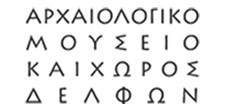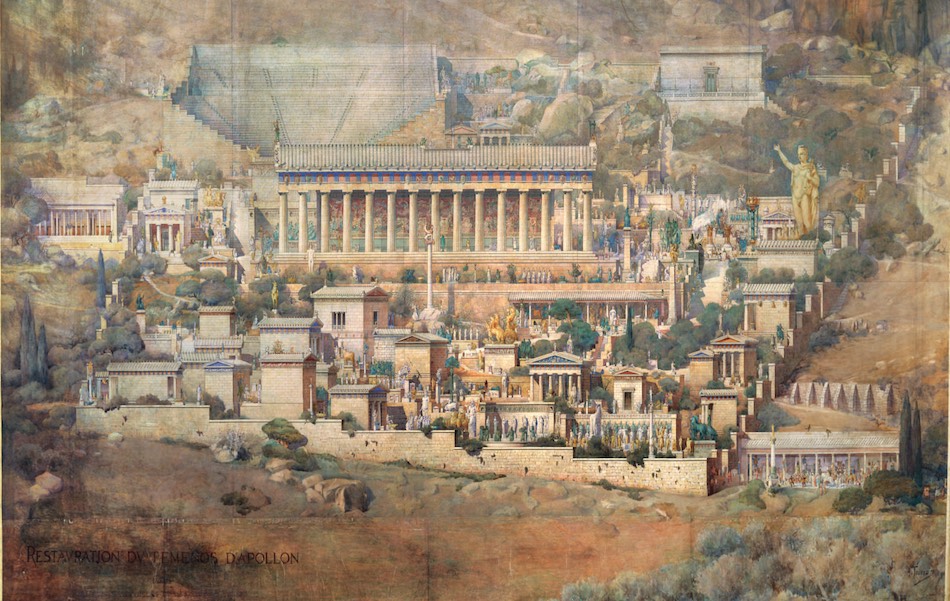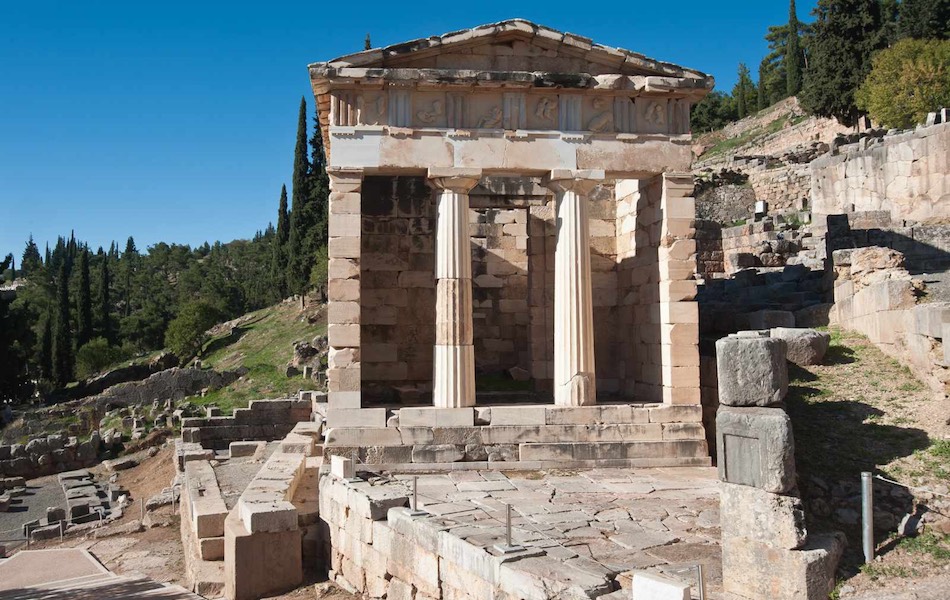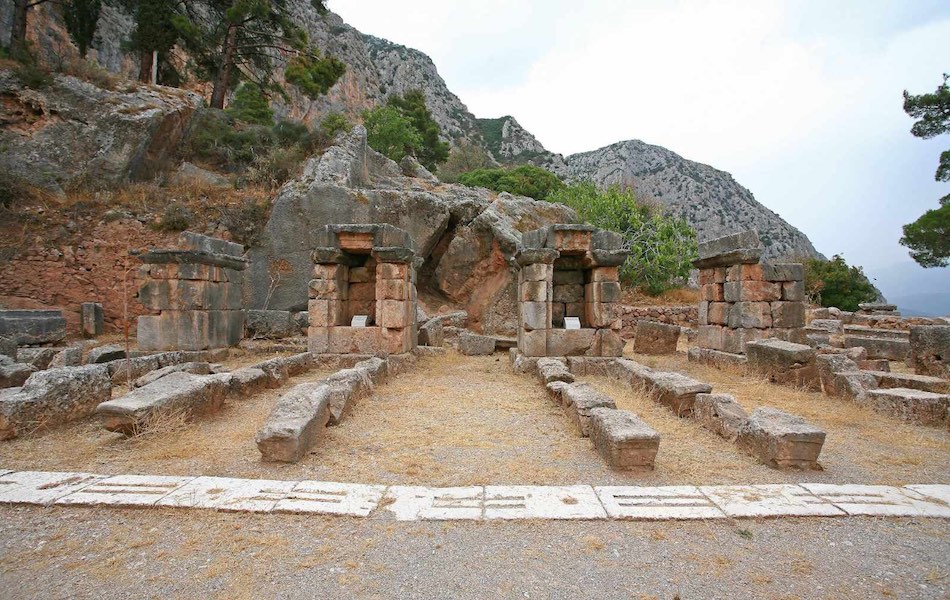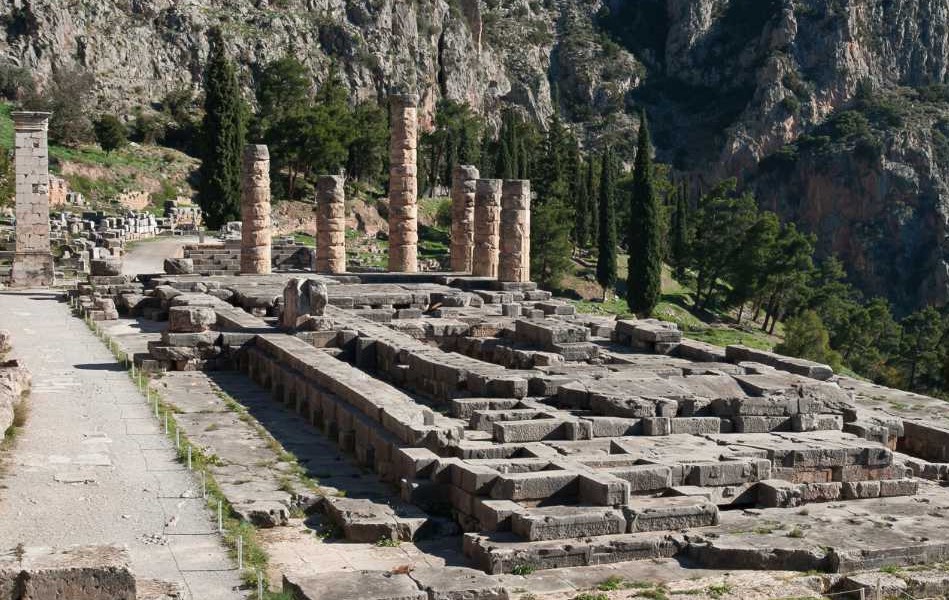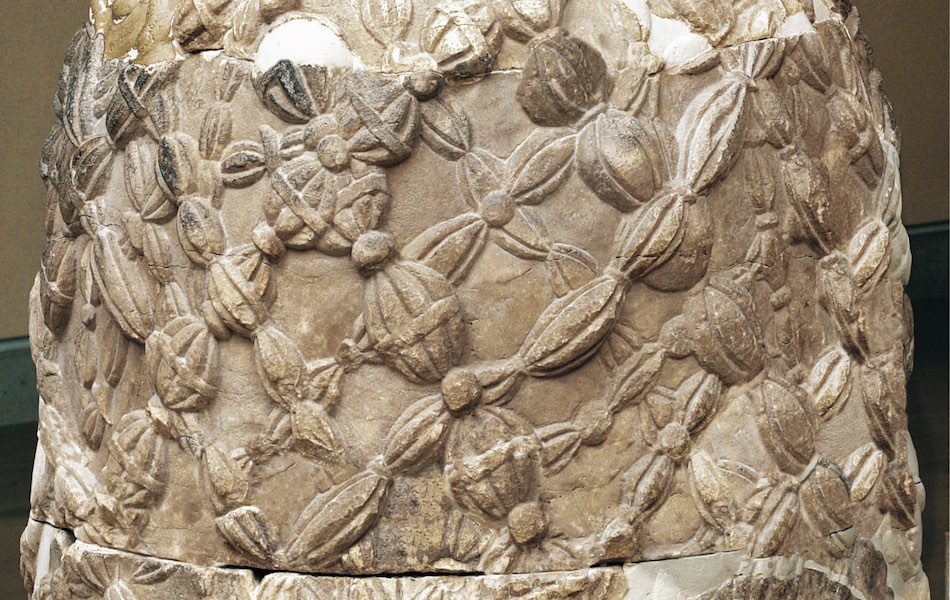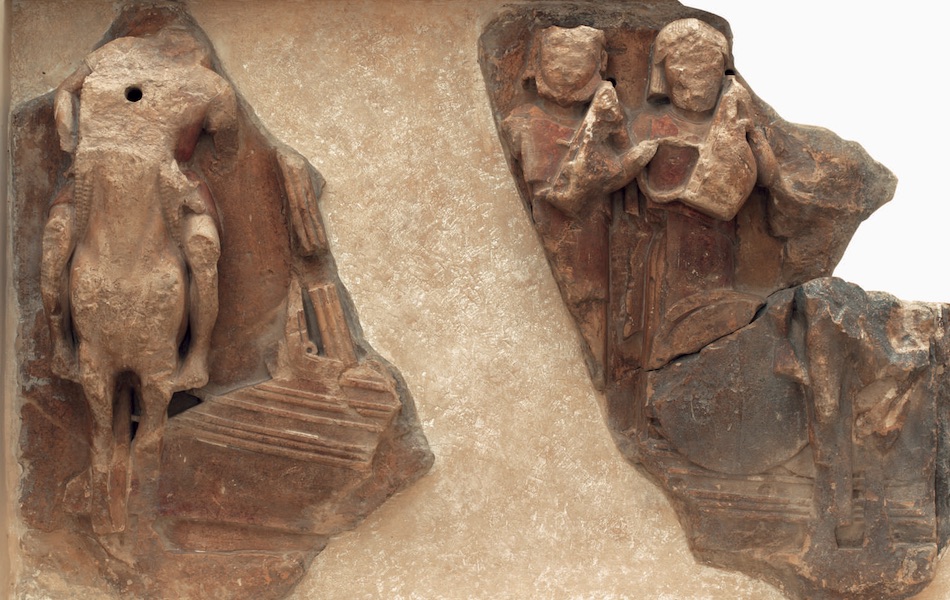Sacred Wars
The First Sacred War: Conflict over the Krissaean plain
In the beginning of the 6th century B.C. the attempt of the Pylaeo-Delphic Amphictyony, controlled by the Thessalians, to take hold of the Sacred Land (or Kirrhaean Plain) of Apollo ended up in the First Sacred War, also known as “Fight for Kirra or Krissa”. The war had as a result the destruction of the city of Delphi. Its end was marked by the organization of the first Pythian Games.
Most scholars don’t contest that this confilct did take place, but they are not in agreement regarding the events, as they are related in the sources. It has been expressed that many elements, such as the intervention of Solon the Athenian, as well as the long duration of the War (10 years) are quasi-mythical.
According to the sources, which are, however, postdated, the war was ignited by the pirate raids of the inhabitants of Kirra against the pilgrims who visited Delphi. The council of the Amphictyons decided to punish the Kirrhaeans. The Thessalians Eurylohos and Hippias were in charge of the attack and the Athenians sent a military unit under Alcmaeon, whereas the tyrant of Sikyon Cleisthenes blocked the city from the sea and was rewarded with one third of the booty. It became forbidden to cultivate the fields of the city, which were dedicated to Apollo, Artemis, Leto and Athena Pronaia, for grazing the animals dedicated for sacrifice. The Kirrhaeans fled to Kirphe and the last flames of resistance died out after five years. According to Pausanias, Solon played an important role in the victory against the Kirrhaeans by inventing a ruse: he turned the water of Pleistus, which was heading towards the city via a canal, to another direction. He then threw roots of the medicinal plant helleborus in the water and turned the river back in its initial canal. The Kirrhaeans dranks the water avidly and they subsequently suffered from diarrhoea, thus abandoning their positions in guarding the wall (Phocica 37.7).
At the end of the 7th century B.C. the sanctuary of Delphi acquired such a fame due to its intervention with the colonization process, that some of the cities or confederations of the Greeks wanted to control it. The First Sacred War and the subsequent reorganization of the Amphictyony resulted in making Delphi the point of contact of the rivalling factions in the course of wars. As attested by the archaeological finds, during the 6th century the presence of the Athenians and the rest of the Ionian cities at Delphi became more intensive. The Pythian Games acquired a panhellenic radiance in those days.
The Second Sacred War
In 457 B.C., after the Battle of Oenofyta, the Athenians who had gained control over Boeotia and Phocis decided to detach the city of Delphi from the Ampictyony and to hand it over to the Phocians The basic reason was the Athenian’s desire to control the sanctuary, i.e. to have the right to Promanteia, but as an excuse they used the pro-Persian behaviour that the Amphictyony had shown. When the Phocians regained control over the sanctuary they minted coins on behalf of the Amphictyony on which features the head of Apollo and a lyre or laurel.
This event caused the reaction of Sparta, who also wanted the Promanteia: in result the Second Sacred War between Athenians and Spartants broke out in 448 B.C.
The war was of a short duration. Thucydides (1.112) is our main source for theses events: the Spartans sent an army to Delphi and restored the city to its prior position.
Right after that, Pericles campaigned again towards Delphi and surrendered the city to the Phocians. This information is backed by Plutarch in his word on the Life of Pericles (Parallel Lives, Pericles. 21). The Phocians held the Sanctuary until 421 B.C., when it was proclaimed independent in the Peace of Nikias.
Third Sacred War (356-346 B.C.)
In 362 B.C. the Phocians, who were allied with the Thebans in those days, did not hold to their promise to assist the Theban army in their Peloponnesian campaign. The Thebans decided to punish them, by accusing them in front of the Amphictyonic Convention for sacrilege, because they had cultivated part of the sacred fields of Delphi. The Convention decided, in 356 B.C., to impose a heavy fine on them, which the Phocians could not pay. Philomelos, from the city of Ledon, persuaded the Phocians in the course of a meeting that they should resist and conquer Delphi. In this way they would achieve a change of the decision against them. The Phocians elected Philomelos as their general in order to let him seek foreign support from the Spartans, The latter, enemies of the Thebans since the old days, offered the Phocians the sum of 15 ingots, in order for the latter to organize an army, with which they managed to conquer the sanctuary of Delphi. Philomelos then fortified Delphi whereas he destroyed the stone slab on which was writtern the decision for the punishment of the Phocians.
Right thereafter, the members of the Delphic Amphictyony under the leadership of Thebes proclaimed war against the Phocians. The Athenians, the Spartans and the tyrants of Pherae in Thessaly allied with the latter. In the first year of the war the Locrians from Amphissa attempted to conquer the sanctuary but they were driven back by the powers of Philomelos. One year later, at a battle fought close to Tithorea, against the Boeotians, Philomelos was killed and he was succeeded by Onomarchos; the latter, laying hold of the Delphic Trasuries, managed to build a strong mercenary army and started fortifying the Phocian cities. He campaigned against the Epicnemidian Locrians and conquered Thronion, against Doris as well as against Boeotia, thus conquering Orchomenus. Next, he turned against Thessaly, causing the first intervention of the Macedonians.
In 354 B.C. Philip moved against them, thus getting the chance to intervene for the first time in Southern Greece. The Macedonians were initially defeated by the Phocians in two battles. In 353, however, Philip managed to dominate over the Phocians in the battle at the Crocus field, close to the Gulf of Pagasae. Onomarchos was killed in battle and he was succeeded by Phayllos. Philip, then, moved against Phocis. The descent of the Macedonians towards southern Greece worried the Athenians, who rushed to stop him at Thermopylae and succeeded to do so. Phayllos died next year and the generalship of the Phocians was assumed by Phalaikos. He led the Phocians against Boeotia after a while, but to no avail. However, the Phocians managed to maintain their possessions throughouth this period. The Peace of Philokrates who was signed between the Athenians and the Macedonians left the Phocians isolated and without allies. Finally, in 346 B.C. the Phocians were forced to surrender. The penalty imposed on them was very harsh, as they were forced to pay 60 ingots a year in order to pay back for the treasures they removed from Delphi, whereas both their votes at the Amphictyonic Convention were taken from them and given to the Macedonians (Diodoros Siculus 23-27).
Fourth Sacred War (339-338 B.C.)
When the Sanctuary of Apollo was restored, after the Third Sacred War, the Athenians erected again the votive offering that they had erected after the Persian Wars, on which there was an inscription accusing the Thebans for their Pro-Persian policy. The Locrians of Amphissa, influenced by Thebans who were favourable to Philip, submitted a proposal in the course of the Amphictyonic Convention of 340 (or 339 B.C.), according to which the Athenians should pay a fine of 50 ingots under the pretext that the restoration of the ex-voto at the time when the Phocians held control of Delphi was a sign of disrespect. The Athenians, however, through a speech of the orator Aischines, proved that those who should be punished were the inhabitants of Amphissa, because they had taken hold illegaly of the sacred fields of Delphi. The Amphicyonic council decided to hold a special session two or three months later. The Athenians and the Thebans did not send envoys to this council. The Amphictyony decided to organize a campaign and they appointed Philip as leader of this campaign; the latter conquered Amphissa and clashed with the coalition of cities of southern Greece which was formed in order to stop him. The final battle was fought at Chaeroneia and ended with Philip’s victory which marked the beginning of the Macedonian supremacy all over Greece.
MUSEUM OF DELPHI
